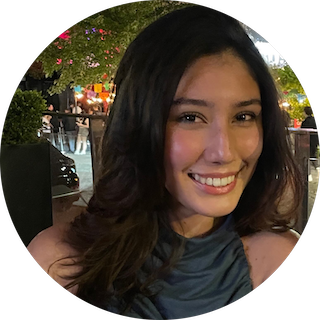
Dr. Victor Kuperman
Dr. Victor Kuperman (PhD Radboud University Nijmegen, 2008) is a Professor in the Department of Linguistics and Languages, the Canada Research Chair in Psycholinguistics, and the Director of the Reading Lab at McMaster University. Dr. Kuperman specializes in several areas of psycholinguistics and quantitative linguistics, including experimental and corpus-based approaches to morphology, and probabilistic models of visual comprehension. He is also interested in cognitive, oculomotor, and computational aspects of eye-movement behavior in reading, as well as in individual differences in literacy acquisition and text comprehension. The research paradigms of the Reading Lab that Dr. Kuperman leads include eye-tracking and other behavioral studies, large-scale norming studies, and quantitative analyses of written and spoken corpora.
Email: vickup@mcmaster.ca
Office Phone: (905) 525-9140 x20384
 Dr. Aki-Juhani Kyröläinen
Dr. Aki-Juhani Kyröläinen
Postdoctoral Fellow
Research interests: aging, corpus linguistics, language processing, machine learning
Aki’s current research program is broadly centered on investigating the role of healthy aging on language use. His line of research utilizes methods from experimentation, machine learning and natural language processing. Currently, he is pursuing a number of projects on aging.
 Yaqian Bao
Yaqian Bao
PhD Student
Research interests: Cognitive mechanisms during reading; Reading comprehension; Cross-language comparison
Bao’s research focus on exploring both universal and specific reading mechanisms across different writing systems. Bao interested in the intricacies of how the human brain decodes written words, retrieves their meanings, employs syntactic rules to organize them into coherent grammatical units, and establishes connections across sentences within the text and with broader external knowledge to create a unified and cohesive mental representation of the text’s meaning.
Email: baoy47@mcmaster.ca
 Jordan Gallant
Jordan Gallant
PhD Student
Research interests: psycholinguistics; methodological innovation; typed production; morphology; second language acquisition; foreign-accented speech
Jordan enjoys collaborative research and is active in a number of different topic areas. His work aims to broaden the psycholinguistic toolkit by exploring innovative methodologies such as The Maze Task and Typing Task. Much of his on-going research aims to uncover the semantic, affective, phonological, and morphological properties that influence typed production, with a strong focus on compound words. He is also engaged in work using typed transcription to gain insight into the processing foreign-accented speech. During his Ph.D., he aims to continue expanding his methodological skill set to include corpus linguistic, data science, and natural language processing techniques.
Email: gallaj20@mcmaster.ca
 Marc-Antoine Paul
Marc-Antoine Paul
PhD Student
Research interests: emotional words and emotional texts processing, psycholinguistics, attentional mechanism, bilingualism, aging
Marc-Antoine’s research focuses on emotional information, particularly how individuals from different backgrounds (e.g., language, age) process emotionally charged words and texts. His MA thesis, which used an Emotional Stroop Task, investigated reactions to Quebec French swear words among native and non-native immigrant speakers. Currently, Marc-Antoine is working on a project examining parafoveal processing of emotional words and another on valence perception across different age groups.
 Keerat Purewal
Keerat Purewal
MSc Student
Keerat is an MSc student in the lab and she is currently exploring sociodemographic variables and how they are related to literacy acquisition, languages, reading, etc. She aims to explore various databases to perform statistical analyses to derive meaningful conclusions with workable results that can be applied in the real-world. Outside of her own research, Keerat has contributed to many other projects around the lab including working on various eye-tracking experiments, the Narratives of War project, and much more.
Email: purewk1@mcmaster.ca
 Olga Dvorova
Olga Dvorova
Research Assistant
Research interests: language learning, thematic analysis, translation
Olga is a visiting PhD student from Taras Shevchenko University of Kyiv in Ukraine and a MA student in Gender and Social Justice at McMaster University. Her MSc research analyzed analytical forms of verbs in the Crimean Tatar language. In her role of Research Assistant at the Reading Lab, she is focusing on written testimonies during the Russia-Ukraine war.
 Brianna Griska-Macphee
Brianna Griska-Macphee
MSc Student
 Sofía Eva Marcia
Sofía Eva Marcia
Undergraduate Thesis Student
Research interests: Psycholinguistics, Language Loss, Reading Comprehension and Abilities, Cognitive Processes, Language Learning
By using and collecting MECO eye-tracking reading data of current undergraduate students and comparing results with the exiting data from pre-pandemic times, Sofia’s thesis aims to explore the severity of COVID-slide and its impact on the learning loss, specifically in reading proficiency, in post-secondary students.
Email: marcias@mcmaster.ca
 Chloe Fernandez
Chloe Fernandez
Research Assistant
Research interests: Reading and language processing, psycholinguistics, influences on literacy development
Chloe is a Level III undergraduate student in the Cognitive Science of Language program. As a Research Assistant, she contributes to eye-tracking studies examining reading comprehension and individual differences in word recognition and text processing.
 Zeljana Lalovic
Zeljana Lalovic
Research Assistant
Research interests: Assistive communication technology, reading and language processing, language and emotions
Zeljana is a third year undergraduate student in Cognitive Science of Language, contributing to the eye tracking studies at the lab.
Email: lalovicz@mcmaster.ca
 Raine Broderick
Raine Broderick
Research Assistant
Research interests: Reading Comprehension and Abilities, Cognitive Processes, Psycholinguistics, Language Processing
Raine is a second year undergraduate student in Combined Honours Cognitive Science of Language and Global Peace and Social Justice, contributing to the eye tracking studies at the lab.
Email: brodem2@mcmaster.ca


 Nadia Lana
Nadia Lana